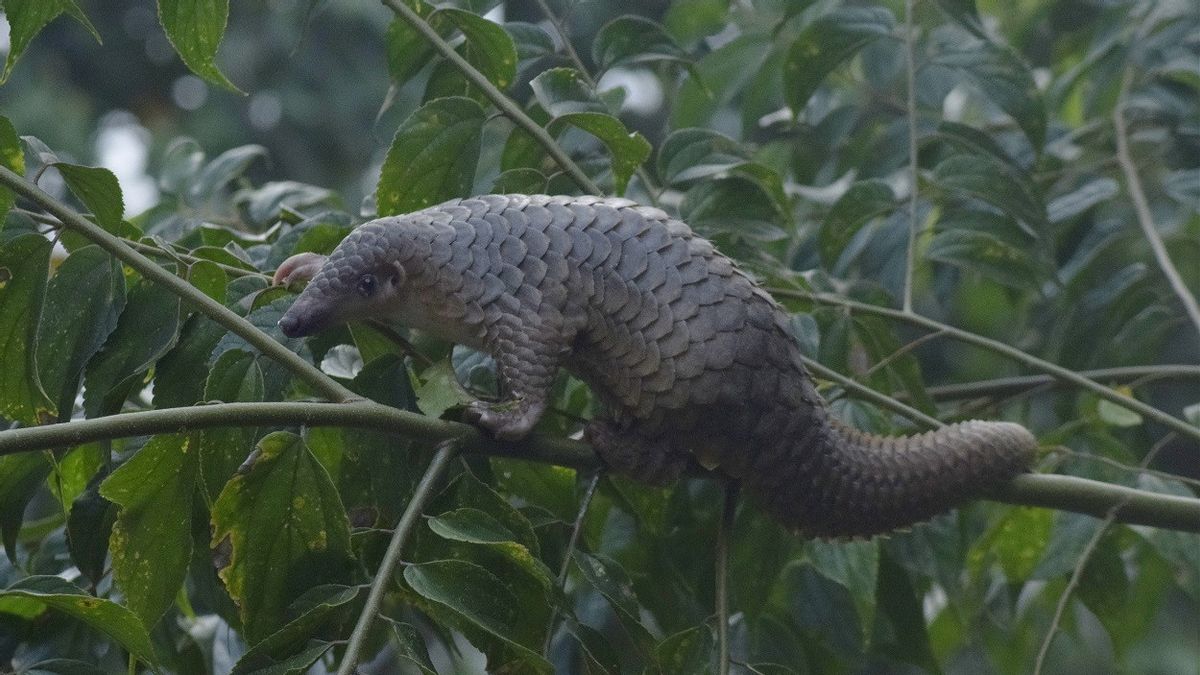JAKARTA - Beijing-backed expansion of traditional Chinese medicine (TCM) in many African countries risks fueling the illegal wildlife trade and threatening the future of some of the world's most endangered species, a new report warns.
The growth of the TCM market, coupled with the perception of Africa as a potential source of TCM ingredients, is "a disastrous recipe for several endangered animal species, such as leopards, pangolins and rhinos", the London-based Environmental Investigation Agency (EIA), which investigates crimes against wildlife and the environment, said in a report published on Wednesday.
China has promoted traditional medicine, which dates back more than 2,500 years, alongside its flagship Belt and Road Initiative (BRI), which develops major road, rail and other infrastructure projects across Africa.
While most treatments are plant-based, demand from industry has been blamed for pushing animals, including pangolins and rhinos, to the brink of extinction.
"Ultimately, the unfettered growth of TCM poses a serious threat to the biodiversity found in many African countries, all in the name of short-term gain," EIA Wildlife Campaigner Ceres Kam said in a statement, citing Al Jazeera Nov. 10.
"Any use of threatened species in TCM has the potential to stimulate further demand, encourage wildlife crime and ultimately lead to overexploitation."
Report, Lethal Remedy: How the promotion of some traditional Chinese medicines in Africa poses a major threat to endangered wildlife, says TCM products have never been more accessible in Africa, with TCM companies and clinics set up in countries across the continent and Beijing stepping up promotional activities in line with the COVID-19 pandemic.
It said some retailers were looking to build complete supply chains from source to sale, and urged strict TCM oversight and government action to prevent the use of endangered wildlife in its products.
While China has sought to crack down on endangered species in traditional medicine, there are still some who prescribe drugs such as aphrodisiacs or to treat ailments from cancer to skin conditions.
The status of the ban on the use of rhino horn and tiger parts, which was imposed in 1993 and abruptly lifted in 2018 before the government made any clear changes, remains uncertain.
"We understand that traditional medicine is an integral part of many cultures and plays an important role in health care in Africa and beyond," said Kam.
“Our very real concern is that such a large expansion of TCM in Africa, such as the one under China's Belt and Road Initiative (BRI), will result in a drastic increase in demand for treatments containing wildlife and, in turn, lead to more many species are extinct. become threatened or extinct.”
As the COVID-19 pandemic continues, healthcare, including strengthening links between TCM and traditional African medicine, is likely to be a key issue at the upcoming Forum on China-Africa Cooperation (FOCAC), which kicks off in Senegal later this month.
The EIA notes that South Africa, Cameroon, Tanzania and Togo are among the African countries that have signed an agreement with China to develop TCM. Meanwhile South Africa and Namibia have recognized TCM as their public health system.
To note, China replaced the United States as Africa's largest trading partner in 2009, and total trade reached 200 billion US dollars by 2020, according to the Center for African Strategic Studies.
The English, Chinese, Japanese, Arabic, and French versions are automatically generated by the AI. So there may still be inaccuracies in translating, please always see Indonesian as our main language. (system supported by DigitalSiber.id)













